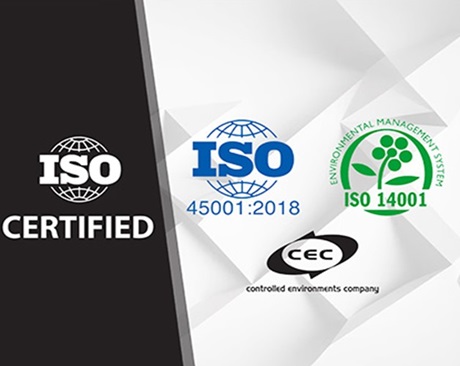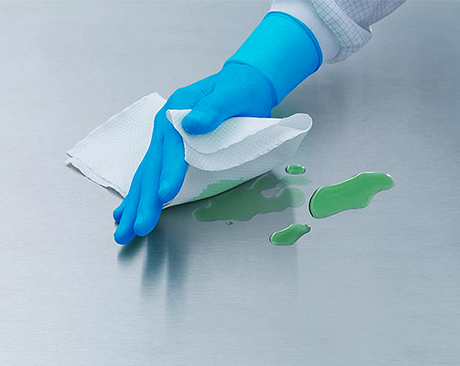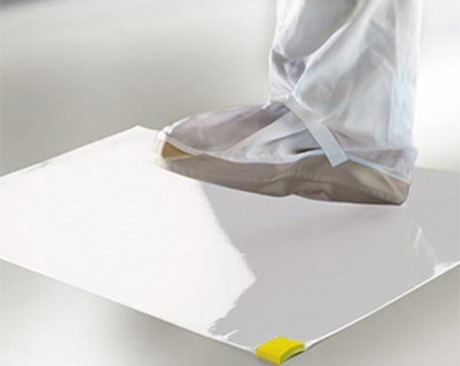Nitrile, Latex and Vinyl Gloves: What Are The Differences?

Disposable gloves are available in a variety of materials, which can often make it difficult to determine the most appropriate glove for a certain task or environment. When considering what glove to use, it is crucial to examine the benefits and limitations of each material type and match the correct glove to the application. Failure to choose the appropriate glove could result in harm to the wearer or compromise the process being carried out.
The most popular materials for disposable gloves are latex, vinyl, and nitrile. To support the decision-making process, we have listed some of the advantages and disadvantages of each option and how they differ from one another.
Latex Gloves
Latex gloves are created using a natural rubber and strengthened by adding a liquid rubber sap. This thick rubber skin provides very high levels of protection against spills, scrapes and cuts while maintaining a high level of flexibility, which offers significant comfort to the user.


- Varying levels of thickness
- Effective barrier against bloodborne pathogens and biohazards
- High degree of touch sensitivity
- Excellent dexterity
- Ideal for medical environments and for electronic assembly
A disadvantage to latex is that it is an allergen and can cause some adverse reactions with a small portion of wearers, from causing the skin to become dry and irritated to more serious allergic reactions depending on the wearer's sensitivity. Even if a person does not have a known latex allergy, repeated exposure to the material can cause an allergy/sensitivity to develop over time.
In addition to this, latex offers low chemical resistance; in the event of a chemical spill or handling organic solvents, latex may not provide sufficient levels of protection. While its sturdy composition has advantages, it can be hard to detect punctures or tears, which could lead to the safety properties of the glove being compromised.
Vinyl Gloves
Vinyl gloves are made from PVC, a petroleum-based film. They are useful in fast-paced environments where gloves are replaced often, such as the food service industry and general industry, as they are quick to don and doff and ideal for handling non-hazardous materials.


- Longer shelf life than latex
- Made from synthetic material
- Non-allergenic
- Lower cost than latex and nitrile
- Cost-effective for high-volume applications
Vinyl gloves do have some disadvantages; however, for example, they do not offer sufficient protection against chemical or biomedical hazards and are far less durable than latex or nitrile. The integrity of the glove's protective barrier can easily be compromised, as when a vinyl glove is stretched or flexed, the individual molecules separate.
While latex and nitrile gloves are form-fitting, vinyl gloves can be loose and not close to the skin, which results in limited dexterity and a higher chance of the glove snagging and tearing. The stiff, loose fit can also cause muscle fatigue, which is uncomfortable for the user if a glove is worn for long periods of time.
Nitrile Gloves
Nitrile is a synthetic rubber which is designed to mimic latex and provide a thinner feel and is largely recognised as the superior material for disposable gloves. Nitrile is exceptionally puncture-resistant, 3-4x more resistant than latex, making nitrile gloves suitable for most medical environments.


- Resistant to chemicals, fats, solvents, and oils
- Ideal for laboratory, pharmaceuticals and agricultural applications
- Good chemical protection
- Non-allergenic
- Skin-like fit for comfort over long durations
Nitrile is the most effective material in breaking up electrostatic charges and contributes fewer particles to contaminate the work environment. This makes nitrile the most popular choice for use in cleanroom environments, where contamination control is essential.
The only major downsides to nitrile gloves are the cost of the material and the tensile strength. Nitrile is a more expensive material, so nitrile gloves generally demand a higher price than latex and vinyl. Also, while nitrile gloves are still highly durable and offer excellent protection against tears and cuts, once a nitrile glove is punctured, it will tear completely.
Controlled Environments Company are a leading distributor of cleanroom consumables, products and equipment, including a vast range of gloves for all applications. To view our full product range, please click here. If you would like to talk to one of our expert team about your specific application for gloves, please contact us at sales@cec.ie.














